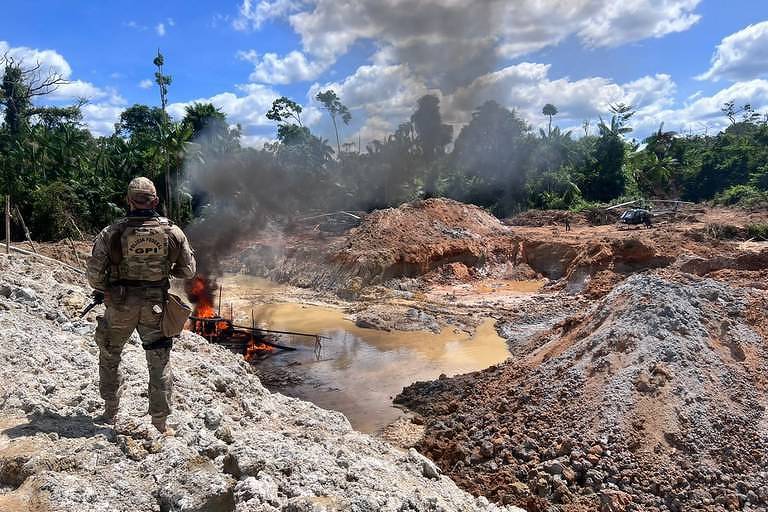The Montanhas do Tumucumaque National Park, Brazil's largest, has become a target for illegal mining. The invasion intensified in the region starting from 2022, according to a recent study released by the Institute of Indigenous Research and Training, which monitors the area.
Since then, the criminal action has caused a total deforestation of 122 hectares in the conservation unit, equivalent to 170 soccer fields.
The institute found that in 2023, there was a 304% increase in the expansion of mining within the Tumucumaque near the Waiãpi Indigenous Territory. The area is adjacent to the Lourenço district in the municipality of Calçoene, 350 km from Macapá — where there has been mining activity for over a hundred years, according to the entity. Between 2021 and 2022, deforestation in the unit was 30 hectares.
In a statement, ICMBio (Chico Mendes Institute for Biodiversity Conservation), the agency responsible for national parks, stated that it is intensifying actions to combat illegal mining in the area with the support of the Federal Police.
